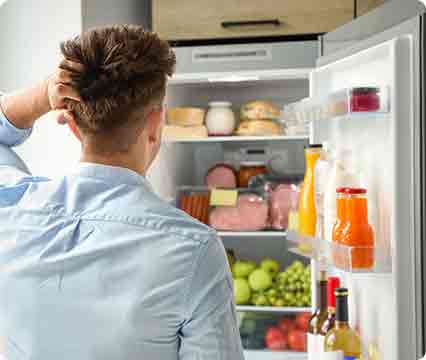Eating when depressed, anxious, bored, or happy: Are emotional eating types associated with unique psychological and physical health correlates?
The aim of this 2018 study was to determine the association between types of emotional eating with psychological and physical health variables. A total of 189 overweight/obese adults enrolled for this study, completed a number of questionnaires and reported their height and weight. More frequent eating in response to depression, anxiety/anger, and boredom were all related to poorer psychological well-being, more eating disorder symptoms, and increased difficulty managing emotions. While eating in response to depression was most closely related to the psychological variables, all 3 of these previously mentioned emotional eating types were associated with specific disordered eating emotions. Positive emotions were not linked with any of the outcome variables. Braden et al. (2018) suggest there may be unique patterns connecting specific types of emotional eating with psychological outcomes. [NPID: mood, emotional eating, emotion regulation, depression, anxiety, anger, boredom, eating disorders]
Year: 2018
 Navigation
Navigation






